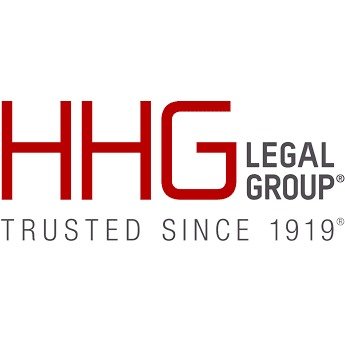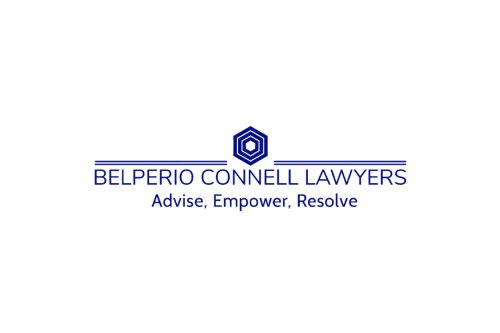Best Accounting & Auditing Lawyers in Australia
Share your needs with us, get contacted by law firms.
Free. Takes 2 min.
Or refine your search by selecting a city:
List of the best lawyers in Australia
About Accounting & Auditing Law in Australia
Accounting and auditing in Australia are vital aspects of financial regulation and corporate governance. They ensure transparency, accuracy, and reliability in financial reporting, crucial for the trust of investors, stakeholders, and the public. The Australian Securities and Investments Commission (ASIC) and the Australian Accounting Standards Board (AASB) play pivotal roles in overseeing practices and establishing standards. The laws are designed to prevent financial discrepancies, fraud, and ensure that businesses adhere to a high level of accountability.
Why You May Need a Lawyer
There are several situations where you might need legal assistance in the realm of accounting and auditing:
- Disputes with auditors regarding financial statement accuracy.
- Allegations of non-compliance with accounting standards or unethical practices.
- Complex tax structuring or facing an audit from the Australian Taxation Office (ATO).
- Implementing or understanding changes in financial regulations and their impacts on your business.
- Seeking advice on corporate financial governance and risk management.
Local Laws Overview
Australia's accounting and auditing landscape is governed by several key legal frameworks and standards:
- Corporations Act 2001: This legislation provides the foundation for financial reporting and auditing obligations for companies.
- Australian Accounting Standards (AAS): These standards are aligned with international benchmarks to ensure consistency and fairness in reporting.
- ASIC's Regulatory Framework: ASIC enforces compliance with accounting and auditing standards, safeguarding the interests of shareholders and the public.
- Tax Law: Governed by the ATO, it dictates the tax responsibilities and audit processes for businesses.
Frequently Asked Questions
What are the Australian Accounting Standards?
The Australian Accounting Standards (AAS) are a set of guidelines that companies must follow in financial reporting, ensuring that financial statements are consistent, comparable, and transparent.
Who regulates accounting and auditing practices in Australia?
The Australian Securities and Investments Commission (ASIC) and the Australian Accounting Standards Board (AASB) are the primary regulatory bodies overseeing accounting and auditing practices.
Why is compliance with auditing standards important?
Compliance ensures the accuracy and integrity of financial reports, reduces the risk of fraud and errors, and maintains investor trust.
What is the role of an auditor?
An auditor's role is to assess and verify the accuracy of financial statements, ensuring they align with established accounting standards and regulations.
How can I resolve a dispute with my auditor?
It is advisable to consult with a lawyer specializing in accounting and auditing law to mediate disputes and ensure compliance with legal obligations.
Can I audit my business financials myself?
While businesses can conduct internal audits, external audits by qualified professionals are required for publicly listed companies to ensure objectivity and accountability.
What happens if my business fails to comply with accounting standards?
Non-compliance can lead to financial penalties, reputational damage, and in severe cases, legal action or suspension of business activities.
What is forensic accounting?
Forensic accounting involves investigating financial discrepancies and fraud, often used in legal proceedings or disputes.
How often should audits occur?
Public companies are typically required to be audited annually, while the frequency for private companies can vary based on regulations and company policies.
What should I do if I suspect financial fraud in my company?
If you suspect fraud, consult with a legal professional experienced in forensic accounting and auditing to investigate and take appropriate action.
Additional Resources
Here are some useful resources and organizations:
- Australian Securities and Investments Commission (ASIC)
- Australian Accounting Standards Board (AASB)
- Australian Taxation Office (ATO)
- CPA Australia and Chartered Accountants Australia and New Zealand
Next Steps
If you require legal assistance in accounting and auditing, consider the following steps:
- Consult with a lawyer who specializes in accounting law to understand your legal obligations and options.
- Gather all relevant documents and financial statements for review.
- Consider contacting a professional organization such as CPA Australia for guidance and recommendations.
- Stay informed by reviewing updates from regulatory bodies like ASIC and AASB.
Taking proactive legal advice can ensure that your business remains compliant with accounting and auditing laws, reducing risks and enhancing governance.
Lawzana helps you find the best lawyers and law firms in Australia through a curated and pre-screened list of qualified legal professionals. Our platform offers rankings and detailed profiles of attorneys and law firms, allowing you to compare based on practice areas, including Accounting & Auditing, experience, and client feedback.
Each profile includes a description of the firm's areas of practice, client reviews, team members and partners, year of establishment, spoken languages, office locations, contact information, social media presence, and any published articles or resources. Most firms on our platform speak English and are experienced in both local and international legal matters.
Get a quote from top-rated law firms in Australia — quickly, securely, and without unnecessary hassle.
Disclaimer:
The information provided on this page is for general informational purposes only and does not constitute legal advice. While we strive to ensure the accuracy and relevance of the content, legal information may change over time, and interpretations of the law can vary. You should always consult with a qualified legal professional for advice specific to your situation.
We disclaim all liability for actions taken or not taken based on the content of this page. If you believe any information is incorrect or outdated, please contact us, and we will review and update it where appropriate.
Browse accounting & auditing law firms by city in Australia
Refine your search by selecting a city.
















